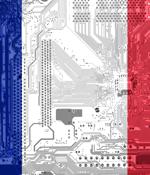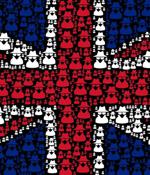Security News

The US Department of Commerce has announced an upcoming US-wide ban of cybersecurity and antivirus software by Kaspersky, as its "Ability to gather valuable US business information, including intellectual property, and to gather US persons' sensitive data for malicious use by the Russian Government pose an undue or unacceptable national security risk." Starting on July 20, 2024, Kaspersky is prohibited from entering into any new agreement with US persons involving its cybersecurity and antivirus products and services.

The U.S. Department of Commerce's Bureau of Industry and Security (BIS) on Thursday announced a "first of its kind" ban that prohibits Kaspersky Lab's U.S. subsidiary from directly or indirectly...

Your profile can be used to present content that appears more relevant based on your possible interests, such as by adapting the order in which content is shown to you, so that it is even easier for you to find content that matches your interests. Content presented to you on this service can be based on your content personalisation profiles, which can reflect your activity on this or other services, possible interests and personal aspects.

In this Help Net Security video, Paul Prudhomme, Principal Security Analyst at SecurityScorecard, discusses the findings of the 2024 Redefining Resilience: Concentrated Cyber Risk in a Global...

Concerned over the chance that Chinese-made cars could pose a future threat to national security, Biden's administration is proposing plans to probe potential threats posed by "Connected" vehicles made in the Middle Kingdom. The US president said he's putting the onus for sussing out the reality of the threat posed by Chinese automobiles on the Department of Commerce, which today said it issued an advanced notice of proposed rulemaking seeking public comment on the matter.

Chinese minister for national security Chen Yixin has penned an article rating the digital risks his country faces and rated network security incidents as the most realistic source of harm to the Chinternet - both in terms of attacks and the dissemination of fake news. The article appeared in China Cyberspace, the official organ of regulator the Cyberspace Administration of China.

In this Help Net Security video, Denis Mandich, CTO at Qrypt, talks about quantum computing. If we thought AI turned security and privacy on their head, quantum computing will break how we encrypt data today and risk revealing sensitive data of citizens, governments, hospitals, banks, and more.

UK Prime Minister Rishi Sunak on Monday announced the National Protective Security Agency as part of a refresh of the government's security strategy known as the "Integrated Review". The refresh included the replacement of the UK's Conflict, Stability and Security Fund with an Integrated Security Fund that's funded to the tune of £1 billion to "Deliver on the core objectives of the Integrated Review at home and around the world, including in economic and cyber security, counter terrorism and human rights."

The U.S. Federal Communications Commission formally announced it will no longer authorize electronic equipment from Huawei, ZTE, Hytera, Hikvision, and Dahua, deeming them an "Unacceptable" national security threat. All these Chinese telecom and video surveillance companies were previously included in the Covered List as of March 12, 2021.

The U.S. Federal Communications Commission formally announced it will no longer authorize electronic equipment from Huawei, ZTE, Hytera, Hikvision, and Dahua, deeming them an "Unacceptable" national security threat. All these Chinese telecom and video surveillance companies were previously included in the Covered List as of March 12, 2021.